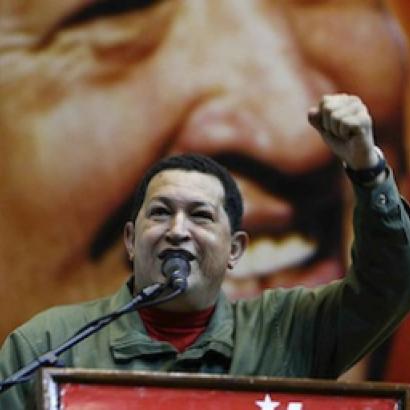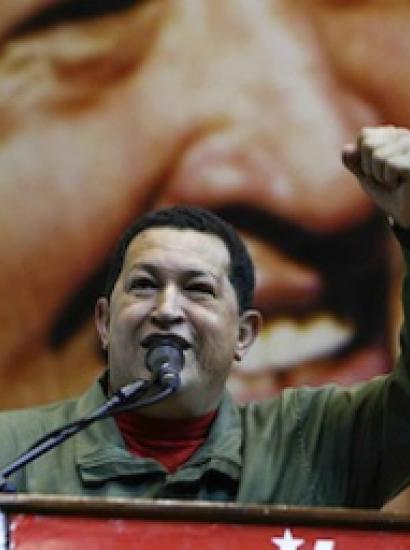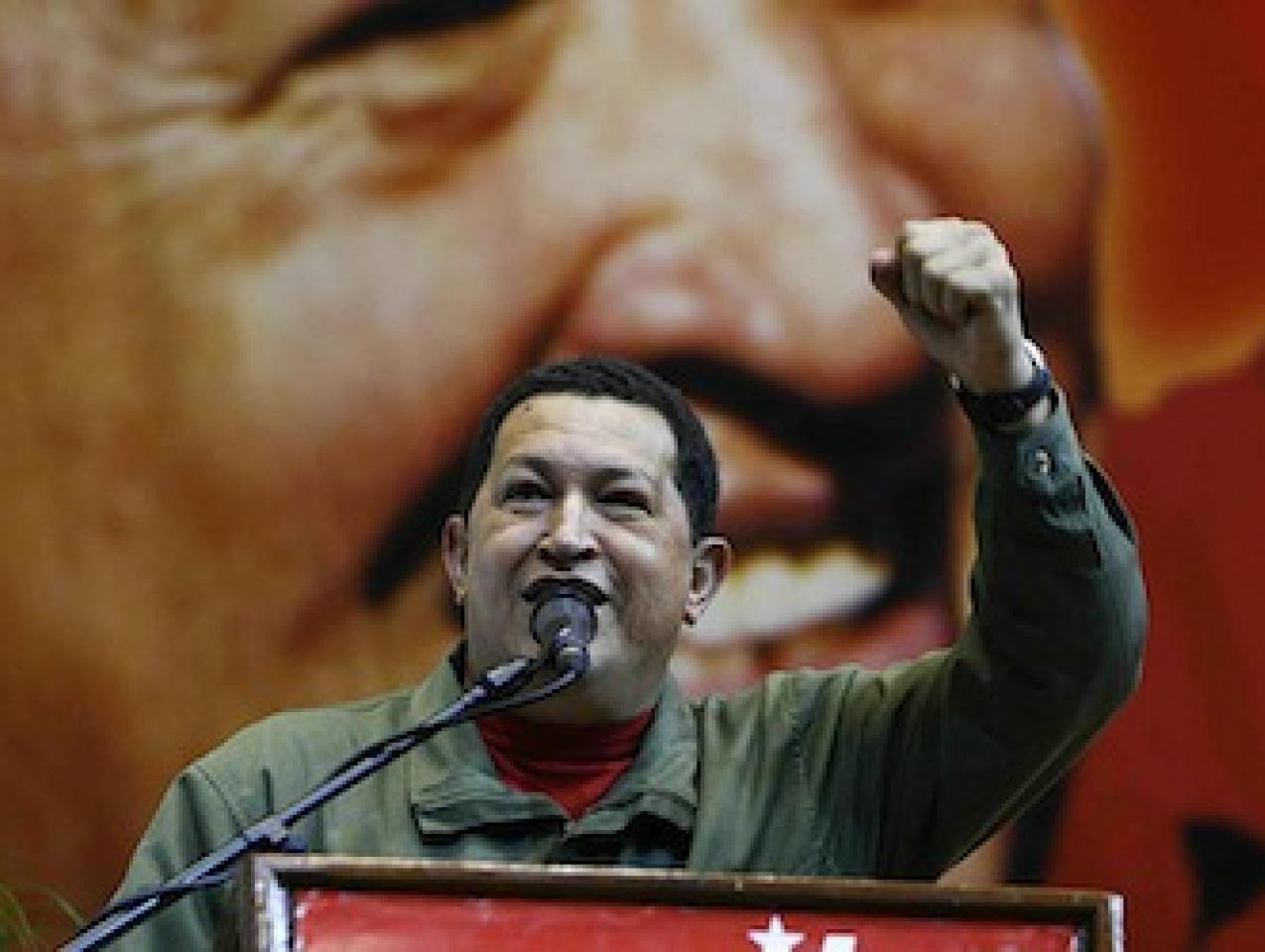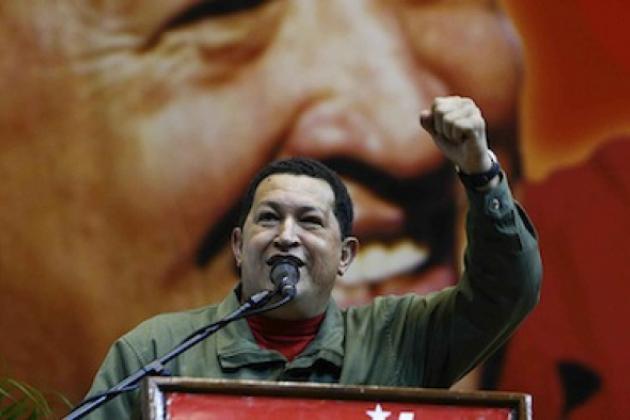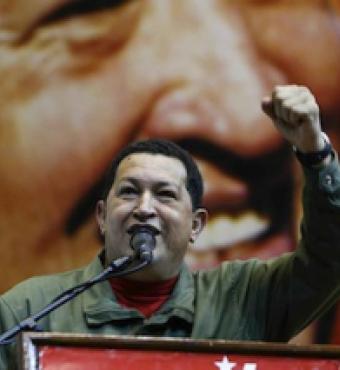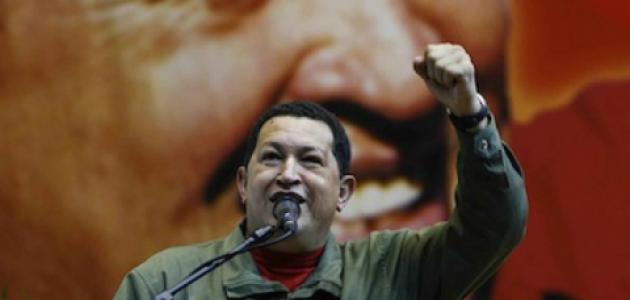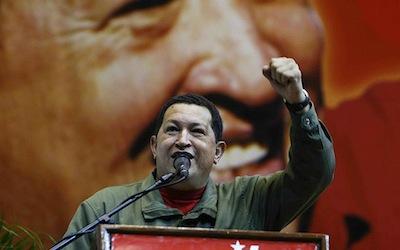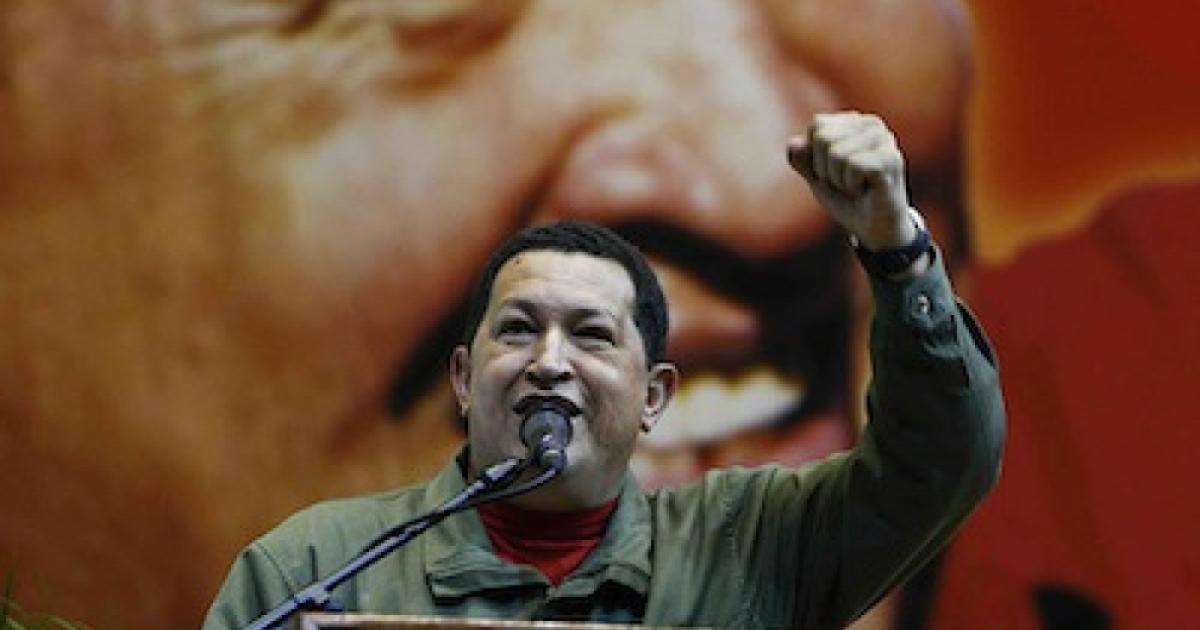- Law & Policy
- Civil Rights & Race
- History
- International Affairs
- US Foreign Policy
Just two years ago, Venezuela's President Hugo Chávez seemed like an indestructible force of nature. Then, in June 2011, we learned that he had cancer, though the details were (and still are) withheld. But cancer and obfuscation didn't prevent Venezuela’s Chavista faithfuls from handily reelecting their benefactor last October for another six-year term. Before returning to Havana for more medical attention in December, Chávez’s anointed his successor, Nicolás Maduro. Then, in March, Chávez died at age 58, adored and abhorred by many at home and abroad.
While one of the most flamboyant presidents in the history of the Americas is gone, questions remain about what his impact was and will be in Venezuela and the region.
Like his Cuban mentor Fidel Castro, Chávez had a massive ego, boundless energy, a love and flair for polemics, and formidable, if rustic, oratorical and demagogical skills, the latter making him seem authentic to many of his poor followers. Chávez also had interests that far transcended Venezuela, not least of which being the role he played as the international anti-imperialist Messiah-warrior for the downtrodden.
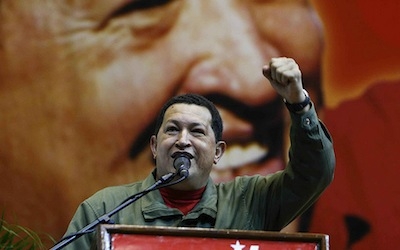
Photo credit: ¡Que comunismo!
But, unlike Castro, Chávez controlled the revenues of an energy-rich country during a time of enormously inflated though volatile oil prices. A majority of Venezuelans never supported his “twenty-first century socialism” and an overwhelming majority rejected his commitment to Castro’s Cuba. But Chávez had extreme good luck in Venezuela’s having so much valuable oil and this enabled him to pass out funds freely to many of the poor. In the end, that is what mattered most to many of them, though Chávez’s policies are already crippling the nation.
A Stacked Election Looms
On April 14, Venezuelans will vote for a new president. There are two candidates: the opposition's Henrique Capriles, the governor of Miranda State, who came within ten percentage points of Chávez last October, and Chávez’s anointed one, the wooden demagogue Maduro.
Maduro is like a character out of a Latin American magical realist novel. He insists, for instance, that Chávez was “poisoned” by “dark forces” (i.e. the United States) and that the new Pope is from Latin America because Chávez put in a good word with Jesus Christ. Candidate Maduro is now claiming that Chávez came to him recently in a small chapel as a little bird singing a song that blessed the candidate, chirping, “Go to victory.” Many Venezuelans cringe at these claims. Maduro must think they appeal to the Chavista masses, and for all we know he believes them himself.
Two polls in late-March showed Maduro ahead by 14 and 18 points, but objective analysts are divided on who might win a truly free election. The vote on April 14 is not likely to be a free election, however. Step-by-step over fourteen years, Chávez has undermined the liberal democracy he used to gain and keep the presidency. And Maduro has inherited Chávez’s machine and sympathy vote.
After Chávez’s death, Human Rights Watch had this to say about the Chávez machine:
During [his] presidency the accumulation of power in the executive branch and the erosion of human rights guarantees enabled his government to intimidate, censor, and prosecute Venezuelans who criticized the president or thwarted his political agenda. President Chávez and his supporters used their powers in a wide range of cases involving the judiciary, the media, and human rights defenders. Prison violence and police abuse remain serious problems.
Election legislation and conditions in Venezuela strongly favor the incumbent, which, in this case, would be Maduro. For example, the government sets how much time is available for candidates on television and finagles about 100 times more for the incumbent than the challenger.
Additionally, anti-business legislation, exchange controls, and a ruined economy greatly reduce contributions to the opposition, while the incumbent has state resources at his disposal. On election day, opposition voters will likely be intimidated by pro-Chavista National Electoral Council and military poll guards, by what are considered doctored registration lists, and by the intimidating use of fingerprints required to verify registered voters.
Latin Populism with Chavista Characteristics
During his life, Chávez claimed that his twenty-first century socialism would be a tonic for troubled modern societies like Venezuela’s. But the key to his success was traditional populism, root and branch. Professor Aníbal Romero at the Metropolitan University of Caracas has defined Latin American populism in terms of frustrated masses who are willing to accept manipulation and even repression by a charismatic, demagogic, and messianic leader if doing so will guarantee handouts and defense from an alleged "external threat."
Adapting the popular Chinese formula, we can say that Chávez’s “socialism” is simply “Latin populism with Chavista characteristics.” A colleague at the Chinese Academy of Social Sciences in Beijing remarked privately that Chávez’s “socialism” is a fraud. He quoted a Chinese idiom about the butcher who hangs a lamb’s head in his shop window but inside sells only dog meat (gua yangtou, mai gourou).
Oil and Conditions in Venezuela
Venezuela is a developing country that has been blessed with some of the largest oil reserves in the world. For several decades before the 1980s, it was one of Latin America’s most prosperous nations. The country’s conditions are now very different, however, due to oil price fluctuations, pre-Chávez leaders who increasingly looked more to personal and party interests than to the good of the population as a whole and, above all, Chávez himself. As Mexican historian Enrique Krause put it, Chávez “presided over what was perhaps the greatest squandering of public resources in the history of Latin America.”
Venezuela’s cash cow is the state-owned company Petroleum of Venezuela (PDVSA). According to the CIA’s World Factbook, oil revenues make up 95 percent of export earnings, 45 percent of federal budget revenues, and about 12 percent of the GDP in the country. Since 2003, PDVSA has been over-milked and under-fed. Maintenance and investment have been woefully inadequate as many billions of dollars were siphoned off to domestic social programs and international handouts.
Chávez constantly concentrated economic power in his own hands and attacked the private sector. Under him, more than 1,500 private businesses closed, hundreds of thousands of private sector jobs were lost, and food and other shortages became commonplace. Venezuela has the highest inflation rate in Latin America, a recently devalued currency, and escalating debt, especially to China and Russia for energy projects. One international index ranks Venezuela as the sixth most corrupt country in the world. Nothing has been more destructive to Venezuela than the cultivation of a “socialism or death” mentality borrowed from Cuba. Chávez thrived on class warfare that will only get worse until it is managed realistically.
In a March lecture at the Harvard's Kennedy School, Francisco Monaldi, the Director of the Center on Energy and the Environment in Caracas, said that even considering Venezuela's massive oil windfall over the past decade, Chávez “did poorly compared to countries with much smaller windfalls” in commodity markets, “both in terms of economic and social performance and in terms of political popularity.”
What is more, “Even his apparently impressive achievements in terms of reduction of poverty and inequality are largely unsustainable” because they occurred by money transfers “without significant long term investments in public goods.”
An International Maverick?
Chávez sought to radically reduce ties to Washington, though the United States is still the main market for Venezuelan oil. He labored with spotty success to create a militant anti-American community of the Americas, mainly through regional projects ranging from the founding of inter-American financial, energy and aid programs that, if they took off, were also dependent in large degree on Venezuelan funding.
Chávez gave many billions of dollars in various ways to friendly governments in Central and South America and the Caribbean, but the increasing independence of Latin American governments in recent years had much more to do with globalization and the rise of China, than with Chavismo.
To underline his radical rejection of the United States, Chávez developed ties to rogue states like Iran, Syria, and Zimbabwe. He was a proud bully and sexist, constantly attacking President George W. Bush as a “donkey” or “devil” who smelled of sulfur, telling British Prime Minister Tony Blair to “go right to Hell,” and “warning” U.S. Secretary of State Condoleezza Rice, “Don’t mess with me, little girl.”
Castro, for his own part, has sought to dominate Venezuela since the early 1960s. Discussions under Chávez about formally merging the two countries were shelved, but informal links became deep in both directions. Indeed, the Castros may owe their survival in recent years to support from China and Venezuela, which is sending Cuba roughly 100,000 heavily subsidized barrels of oil a day.
In exchange, Cuba sent Venezuela an admitted 35,000—but probably many more—doctors, teachers, technicians, and public security, military and intelligence agents and advisers. Some Venezuelans believe their sovereignty has been breached, but it was at the invitation of their elected president, which makes it even more serious.
Domestically, Chavismo is built on and promotes class struggle and handouts that encourage dependency more than a strong work ethic, creativity, and cooperation across society for common ends. Both domestically and internationally, Chavismo cultivates the least productive aspects of traditional Latin American culture and institutions. The relative strength of the opposition today suggests that many Venezuelans are fed up with this political primitivism, which prefers scapegoats to serious, self-critical analysis and actions.
Maduro is reputed to be a good negotiator. Perhaps if he wins, he will gradually retreat from Chavista primitivism, even though he is campaigning on it now. If he does so, the movement will doubtless split into several factions as Peronism did in Argentina.
If Capriles wins the election, he will be blamed for the decline of the economy, which was made inevitable by Chávez. He will undertake some realistic market-friendly reforms but retain some Chavista social programs. Populism will not go away in Venezuela or the region, and its influence will remain a measure of how successfully Latin American leaders and voters generally are in coping rationally with the economic, civil, and security needs of the people.








